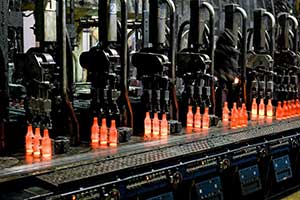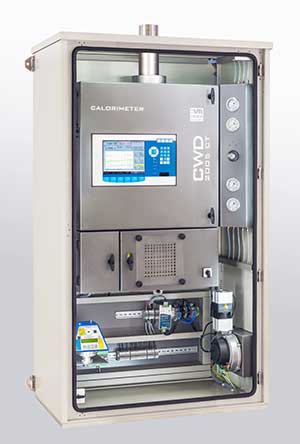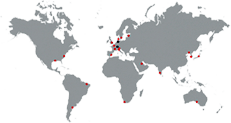Challenges in the liberalized natural gas market
Distributed on 21 August, 2014 | The liberalization of the German and European natural gas market is aimed at increasing the security of the supply and ensuring a stable long-term price level through more sources of supply and the infeed of gases from regenerative sources (biomethane, hydrogen). These positive aspects are accompanied by significant problem areas.
Glass industry particularly affected
This has consequences for thermal processing operations. The glass industry is particularly affected because the product quality is heavily dependent on combustion operations on and in the gas melt and thus on the combustion gas used. These include furnace temperatures and controlled heat input as well as flame temperature and flame shape. The pollutant emissions from a system are also related to the combustion gas properties. The process emits oxides of nitrogen whose concentration in the exhaust gas is a function of the combustion gas composition and can, in the worst case, exceed permissible limits, thereby necessitating a more powerful DENOX system with corresponding costs. Finally, there is a dependency between the load and service life of the burners and the fire-proof material of the glass trough and the combustion gas used.
More gas measuring technology
The solution to these problems lies in greater use of gas measuring technology in automation systems of process plants and the resulting ability to check a constant gas property through appropriate additives. The devices of choice are continuously measuring combustion calorimeters for direct determination of values such as the Wobbe index or, when combined with volumetric meters and converters, energy quantities. Other analysis methods such as gas chromatography separate the combustion gas into individual components from whose concentration the indices are calculated. This batch analysis method is more demanding in terms of operation as well as the purchasing and operating costs compared to combustion calorimeters. An especially progressive analysis method uses selective sensors, often in miniature form, to continuously determine the concentration of certain gas components.
Wide range of devices and extensive application knowledge
UNION Instruments, the German company with long tradition since 1919, has continuously expanded its range of devices in recent years. With its powerful CWD2005 (determination of Wobbe index, heating value and density), EMS2005 (determination of energy content), and INCA (determination of gas composition) device series, the company is one of the leading providers of devices and systems for analysis of natural gas, biogas, biomethane, and process gases. Variants with approval for custody transfer measurements are also available as are designs for use in hazardous areas. Interfaces to commonly used communication technologies such as Profibus, Modbus, and Profinet ensure integration in automation systems. Extensive application experience opens the way to application-oriented system solutions, as well.
Captions:

Figure 1: UNION-Instruments_PM2014-02_Glasindustrie_20140821_1:
Mechanized container glass production (Copyright: Bundesverband Glasindustrie e.V., CC BY-SA 3.0)

Figure 2: UNION-Instruments_PM2014-02_Glasindustrie_20140821_2:
The EMS2005 (Energy Measuring System) of Union Instruments for determining the energy content of combustible gases consists of a CWD2005, a flow measurement and a converter.




